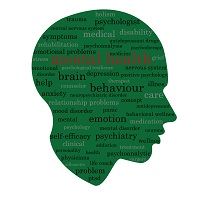Housing Conditions Affect Mental Health
In all cases of participants experiencing housing problems for even 1 year, indicated poorer mental health.

According to a study conducted in the United Kingdom, not only does living in poor quality housing negatively affect mental health, but a "persistence of poor housing" and housing problems is predictive of worse mental health even when that person's housing conditions improve.
The study published by Preventative Medicine argues that although current research confirms a correlation between poor housing and mental health, those studies "may overlook the persistence of housing problems and the toll they take on mental health" — most commonly found through stress and anxiety. Stress and anxiety related to poor housing, may linger long after housing problems have been improved for individuals.
UK and Australian researchers, led by David J. Pevalin, PhD, with the University of Essex's School of Health and Human Services in Colchester, England, performed the longitudinal analysis of housing and mental health using data from the annual British Household Panel Survey (BHPS) data for 81,745 person/year observations from 16,234 individuals collected between 1996—2008.
The data was compared to the General Health Questionnaire data, measuring the "cumulative impact" of housing problems on mental health over time, with a special interest in what Pevalin defines as persistent housing problems.
In the BHPS survey, respondents were asked to indicate whether or not their current housing has adequate light and heating, is affected by dampness, condensation, leaky roofing, or whether there the walls or floors are rotting.
Poor housing was defined as having at least 1 of the 6 housing problems in the survey. In addition to housing information, demographic data was collected on age, sex, financial strain, recent housing changes, monthly income, marital status, housing status (rent/own/etc.), and location of home.
Housing data was paired with mental health data and measured by the 12-item General Health Questionnaire (GHQ), which Pevalin and colleagues used as a longitudinal "indicator of minor psychiatric morbidity."
The data was analyzed and compared to determine density of housing problems versus mental health in order to test whether respondents with more housing problems have poorer mental health compared to those exposed to fewer housing problems, whether density of housing problems could accurately predict mental health besides the effect of current housing problems, and whether long-term change in mental health is driven by long- or short-term changes in housing problems.
Data from statistical analysis confirmed Pevalin and associate's hypothesis about the effect of poor housing on mental health, determining a positive association between housing problems and mental health.
Statistical analysis of data determined that in 100% of cases, individuals experiencing housing problems for even 1 year had a higher GHQ score indicating poorer mental health. Although Pevalin and colleagues note that "the association between housing problems and mental health diminishes over time," it is not until 4 years post-housing problems that confidence intervals for the association between housing problems and mental health marginally cross 0 (p = 0.052).
Pevalin and colleagues suggest this indicates the impact of housing problems on mental health may be as long as 5 years.
Data also showed that as the density of housing problems increased for respondents from 0 to 1, there was a similar increase in the GHQ scores for those respondents with an average of 0.92 (95 CI 0.72-1.13). Pevalin writes that "holding all the other covariates at their mean value, a person without any history of housing problems would have an estimated GHQ score of 11.15 while a person who has been living with housing problems for the last 4 years would have an estimated GHQ score of 12.08."
Although there is an improvement in health once housing problems are removed, data showed that even when the current experience of housing problems was adjusted for, there was a statistically significant (β = 0.65 95% CI 0.45-0.84) correlation between poor housing and mental health effects.
Pevalin and colleagues conclude there is a strong, long-term impact of continual poor housing on mental health, but also theorize that an impact may be mitigated by an associated lack of choice or restricted choice in available housing combined with financial strain which could independently affect mental health.
Conversely, an individual's previous mental health problems, or "episodes of mental distress," may have an effect on access to quality housing by affecting finances and therefore housing options, creating a persistent cycle.
Pevalin and colleagues suggest a renewed emphasis by UK policymakers and public service in recognizing the link between housing conditions and mental health.
The US National Alliance on Mental Illness's webpage reports that the lack of safe and affordable housing is a powerful barriers to recovery for persons with mental illness, however there is currently no US study data available on longitudinal effects of poor housing and mental health.
On the US state and national level there’s been an increase in healthy home initiatives focusing on housing and public health as a whole, but those initiatives primarily emphasize physical rather than mental health.
The data from the UK study proves that an ongoing and persistent connection between poor housing and poor mental health suggests an equal emphasis should be placed on mental health concerns when it comes to housing quality and safety.
"The impact of persistent poor housing conditions on mental health: A longitudinal population-based study" appears in the December 2017 issue of Preventative Medicine.
Related Coverage
High Incidence of PTSD Among Cancer Patients
Blueprint Can Help Facilities Reduce Unnecessary Clinical Testing
Brexpiprazole Phase 3 Trials Initiated for Bipolar Treatment